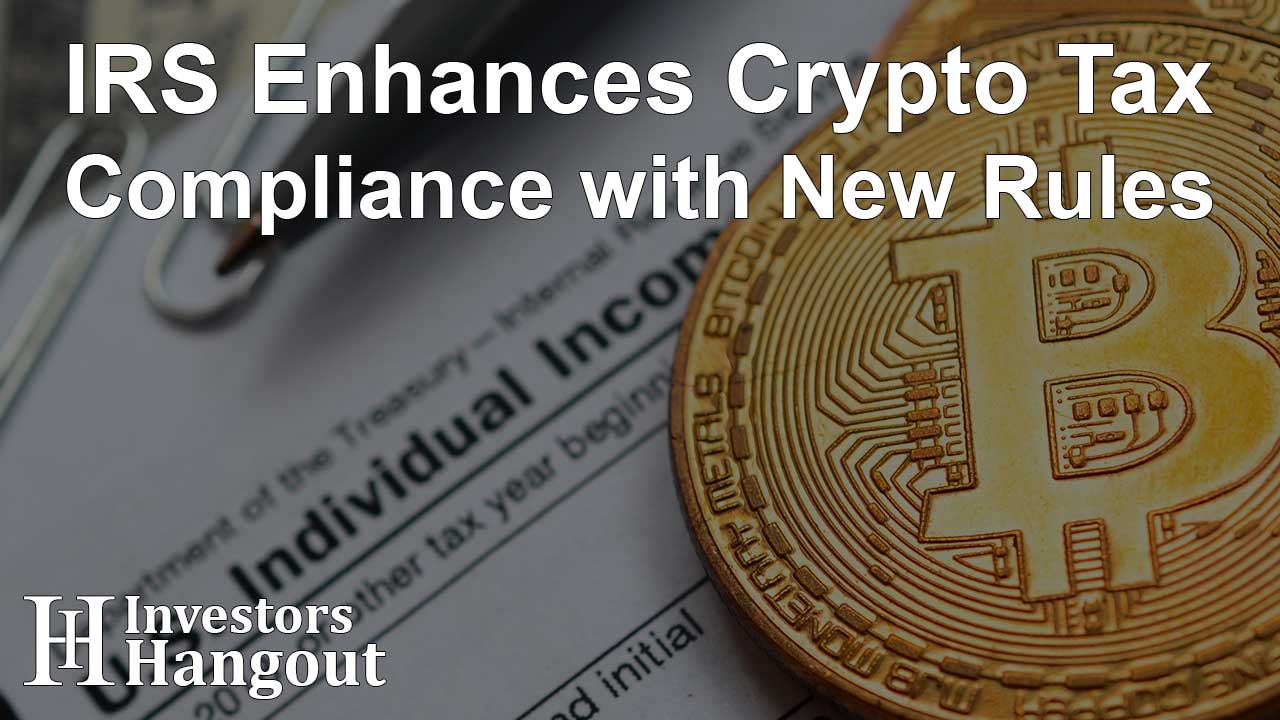IRS Enhances Crypto Tax Compliance with New Rules

Introduction to the New IRS Guidance on Crypto Tax Reporting
The IRS has published final guidelines for digital asset brokers' tax reporting. These guidelines reflect an attempt to guarantee compliance among high earners. Yearly reporting will become required beginning in 2026. Using Form 1099-DA, digital currency brokers must report gross sales proceeds in 2025. Brokers have to include the cost basis for some sold digital assets by 2027, based on 2026. This direction seeks to stop taxable income from being hidden using digital assets. The IRS expects these guidelines will help to increase noncompliance detection.
Timeline for Mandatory Yearly Reporting
Starting in 2026, the new IRS reporting rules will phase in. Using Form 1099-DA, brokers have to document gross proceeds from digital asset sales in 2025. The reporting will grow to include sales made in 2026 by 2027, so including the cost basis. This phased strategy allows brokers time to meet the new criteria. The IRS wants to guarantee a seamless flow for all the engaged parties. The intention is to raise crypto market compliance and openness. These developments should be known to investors, who should then get ready.
Impact on Digital Asset Brokers: Form 1099-DA
Under IRS guidelines, digital asset brokers will be in charge of new reporting duties. They have to file Form 1099-DA with gross proceeds from sales of digital assets. This obligation begins in 2026 for 2025 sales. Brokers have to also document the cost basis for sales made in 2026 by 2027. This guarantees exact recording of all taxable events. To follow these standards, brokers must change their reporting systems. Good reporting will enable the IRS to find and stop tax avoidance.
IRS Efforts to Improve Tax Compliance in Digital Assets
The IRS is emphasizing on raising digital asset tax compliance. Commissioner Danny Werfel said that high-income tax compliance depends critically on these rules. The IRS wants digital assets not used to conceal taxable income avoided. The new regulations will enable identification of noncompliance in the high-risk domain of digital assets. This action is a part of a larger endeavor to guarantee that every taxable income is recorded. The IRS is working to increase openness of digital asset transactions. These initiatives seek to lower the tax gap and raise compliance.
Financial Implications of the Inflation Reduction Act
The Inflation Reduction Act calls for digital asset reporting among other things. Approved in 2021, it projected bringing about almost $28 billion over ten years. This projection drew on better reporting and compliance. Still, the beginning date for these clauses was delayed. This drive to boost income includes the new IRS rules. Better reporting will enable the IRS to gather taxes due from online asset transactions. Since it seeks to increase federal income, the financial consequences are rather important.
IRS Enhances Digital Currency Services with New Hires
Two former bitcoin executives have been hired by the IRS to improve its digital currency offerings. These employees seek to enhance programs on reporting, compliance, and enforcement. The agency is particularly emphasizing the special difficulties presented by digital assets. The IRS intends to better grasp the crypto market with the help of these fresh analysts. Better services will benefit taxpayers and the IRS as well. The intention is to simplify and speed compliance. These initiatives will help to support the new reporting obligations.
Establishing Basis for Digital Currency Before 2025
By the end of 2024, crypto investors must have laid the foundation for their digital money. This entails giving every digital wallet a basis. An investor purchased currencies over several years will have different basis lots. Right now, tax software calculates gains using the best basis—combined accounts. Every asset's basis going forward needs to be unique to the wallet. Should you be unable to provide your basis, the IRS treats it as zero, which increases taxes. Accurate establishment and documentation of the basis is absolutely vital before the deadline.
Key Takeaways for Crypto Investors for the 2024 Tax Year
The forthcoming tax season won not be covered by the new IRS regulations. For crypto investors, 2024 is absolutely essential for accurate reporting though. Investors have to gather and document their crypto information including the cost basis. Starting in 2025, the IRS will have more data to validate past reporting. Good reporting in 2024 will help to avoid problems down ahead. Understanding the new criteria is crucial, thus one should get ready accordingly. Accurate reporting today will enable investors to follow upcoming IRS guidelines.
About The Author
Contact Thomas Cooper privately here. Or send an email with ATTN: Thomas Cooper as the subject to contact@investorshangout.com.
About Investors Hangout
Investors Hangout is a leading online stock forum for financial discussion and learning, offering a wide range of free tools and resources. It draws in traders of all levels, who exchange market knowledge, investigate trading tactics, and keep an eye on industry developments in real time. Featuring financial articles, stock message boards, quotes, charts, company profiles, and live news updates. Through cooperative learning and a wealth of informational resources, it helps users from novices creating their first portfolios to experts honing their techniques. Join Investors Hangout today: https://investorshangout.com/
